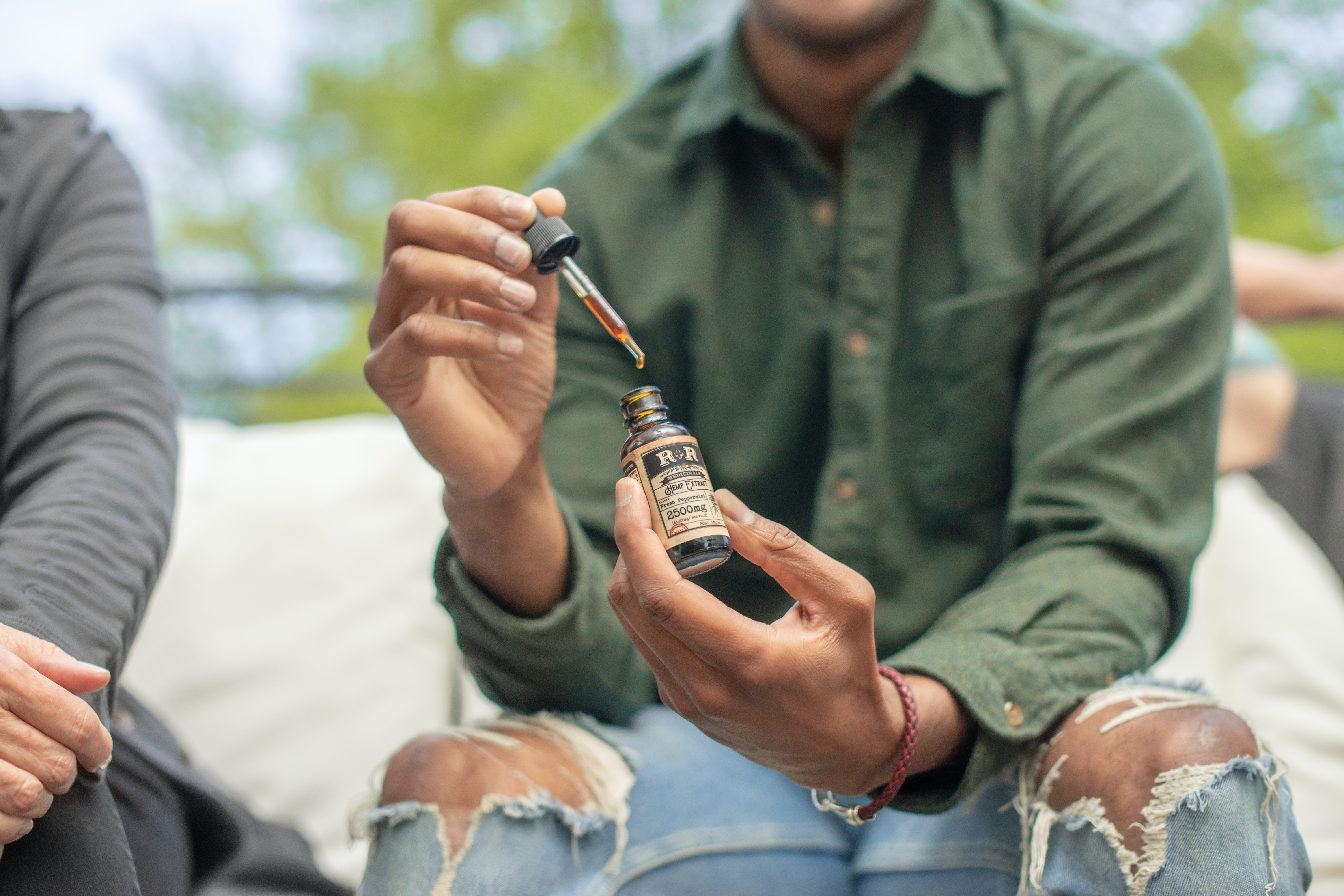
So you’ve hear all about the amazing health benefits of Cannabidiol (CBD):
- Reduces inflammation
- Relieves pain
- Alleviates stress
- Calms anxiety
- Improves digestion
- Increases mobility
- Promotes restful sleep
- Uplifts your overall mood
- And more…
You may even experience these benefits in our own health and body. But now you’re probably wondering: Do I have to stay on CBD forever in order to feel normal? Does CBD have addictive properties?
We understand your concern and want to put your mind at ease. That's why we've done the research and compiled all of our findings in this article. So sit back, grab a snack, and find out the relationship between CBD and addiction below.
Is CBD addictive?
The short answer: No, CBD is not addictive. But you don’t have to take our word for it… According to the World Health Organization, “In humans, CBD exhibits no effects indicative of any abuse or dependence potential… To date, there is no evidence of public health related problems associated with the use of pure CBD.”
Additionally, a study was done to see if oral CBD would produce abuse in avid marijuana smokers. As luck would have it, researchers found that CBD produced absolutely no abusive behaviors, concluding that it was no more addictive than the placebo from the study.
In other studies, researchers found that even high doses of CBD is not addictive or toxic. While some side effects have been rarely reported, CBD is well tolerated among its users more so than THC. Still, more studies are needed to determine the safety of CBD from long term use.
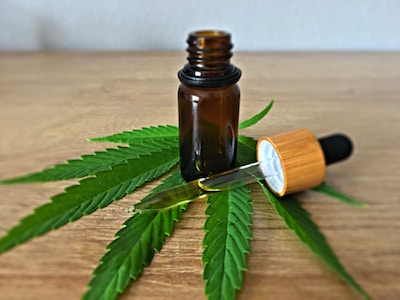
So while CBD naturally exists in the cannabis plant, including hemp and marijuana, it’s not addictive or psychoactive. It won’t get you “high” like its close cousin Tetrahydrocannabinol (THC).
This is great news for those who feel they are ready to take a break from CBD to see how their body is doing on its own without any CBD supplements.
But does this mean all CBD products like the ones below are non-addictive?
- CBD capsules
- CBD gummies
- CBD teas and coffees
- CBD oils
- CBD flowers and vapes
The truth is, if the CBD is hemp-derived and only contains no more than 0.3% THC, then you should have no fear about becoming addicted to those supplements.
Now you might be asking: Why does the CBD need to be hemp-derived and only have 0.3% or less THC?
Is THC addictive?

Again, CBD naturally exists in both hemp and marijuana; it's the amount of THC that exists in these plants that raise concern. Hemp only contains trace amounts of THC (0.3% to exact). Whereas marijuana contains well over 0.3%. This is why industrial hemp is legal and marijuana is not.
According to the National Institute on Drug Abuse (NIH), consuming marijuana regularly could lead to “marijuana use disorder, which takes the form of addiction in severe cases.” In fact, data shows that “30% of those who use mairjuana may have some degree of marijuana use disorder.” This is especially true for those who use marijuana before the age of 18. The data suggests that young users are “four to seven times more likely to develop a marijuana use disorder than adults.”
When chronic marijuana users try to stop using, some have reported feeling:
- Moody
- Irritable
- Restless
- Odd cravings
- Lack of appetite
- And issues with sleeping
All of these are considered withdrawal symptoms. But cannabis advocates claim that THC is non-habit forming. Still, according to some government studies, the Centers for Disease Control and Prevention (CDC), and the data from the NIH we shared above, it seems THC is addictive when used chronically (for some users) and of course when consumed at a young age.
But don’t worry, the amount of THC found in hemp isn’t enough to cause any dependency. However, the mind is a powerful organ, as are suggestions.
Let us explain.
The power of suggestion is more powerful than you think
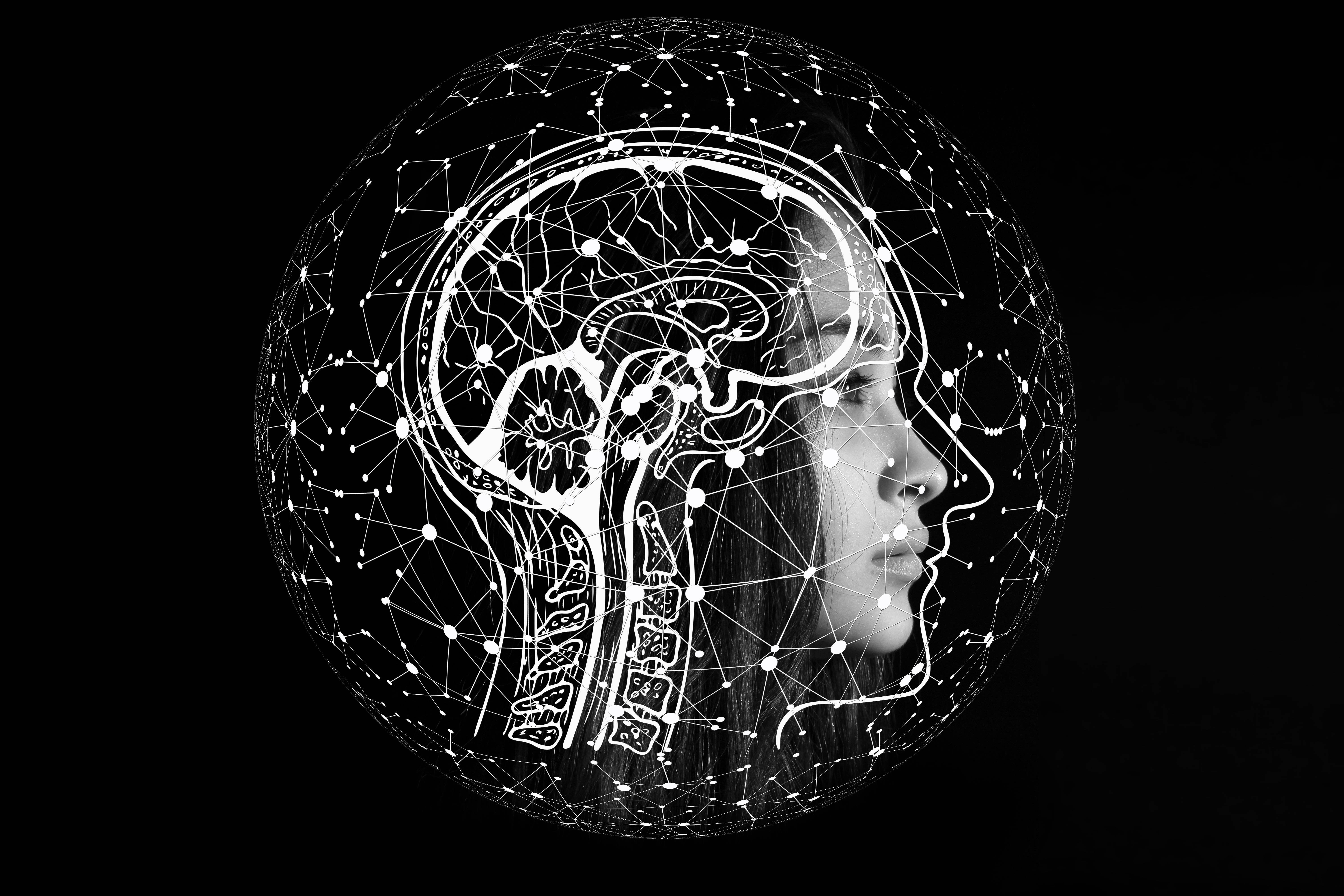
The phrase, “the power of suggestion” is very much true in the world of medicine, supplements, and all things health and wellness.
This means, if we allow it, we can make up our own realities based on the idea that a supplement or medicine is doing more or less than it really is. That’s not to say that the health promoting benefits of CBD are all made up in our minds. Thank goodness for legit scientific data, am I right? Rather, it just means that if you constantly dwell on CBD being addictive, then what you expect from an addictive product could influence your behavior and symptoms.
For example, say you go to a friend’s house and you sit on their sofa, and their sweet pomeranian comes running to greet you. You start hugging, kissing, petting, and loving all over her, when out of nowhere your friend says, “I think my dog has fleas.” Suddenly, you start scratching your head and feeling things crawl up and down your legs. Now their dog may or may not have fleas, but the suggestion of having fleas has already been made. Therefore you’re paying attention to the information differently than if they never said anything at all.
The same goes for the health supplements. Someone can give you a health promoting herb, and you may not feel anything at all after taking it. But if that someone constantly shows you attention, gets you excited, and repeatedly asks you, “Do you feel anything now? How about now? How’s your head? Do you feel anything in your back? What about your legs?”
For the sake of getting them to either leave you alone, to shut up, or appease them, you say, “YES!” Now, maybe you would’ve felt something if you gave it enough time, but given the situation you were in, you don’t know for sure.
The same goes for supposedly feeling the negative side effects of supplements. Someone could suggest that they didn’t feel normal unless they took CBD. Then when they tried to stop taking it, they had crazy withdrawal symptoms, thus suggesting CBD is addictive. But that couldn’t be further from the truth. The power of suggestion plays a much bigger role in our minds than we think. So before you start, or discontinue, a health promoting supplement, do your research, speak to a doctor, and keep a journal. Only you can determine how your body will react!
This leaves the question: How is it that CBD isn’t addictive like THC?
Why aren’t CBD oils and other products addictive?
While CBD and THC are both phytocannabinoids, meaning they’re both derived from plants, they interact with our cells entirely differently.
THC is known to attach to our endogenous cannabinoid receptors. There are only two endocannabinoids that scientists know of in the human body: Anandamide and 2-Arachidonoylglycerol (2-AG).
When high amounts of THC enters the body, it will cause psychoactive effects in the mind. In other words, it will get you “high”. Some symptoms of being high include:
- Slow perception of time
- Short term memory loss
- Anxiety or paranoia if you take too much THC
It’s also been reported that high amounts of THC can:
- Increase appetite (think munchies)
- Uplift mood (think feeling good and laughing a lot)
- And some pain relief
See, THC isn’t all bad. What matters most is why you’re using it and how much you use it.
CBD, on the other hand, doesn’t actually attach to our receptor cells, but rather influences them to bring balance throughout the whole body. So if you're in pain, it helps influence the body to reduce the inflammation that creates the pain in the first place. It’s a bit confusing even for scientists and researchers, but cannabinoids like CBD and THC are still being studied to see exactly how they influence the human body.
Bottom line, CBD is more of an encourager and influencer in the body, whereas THC is more hands-on with our receptor cells and cannabinoids. This may explain why CBD isn’t addictive like THC can be (for some users). In fact, studies show that CBD can actually reduce withdrawal symptoms from addiction and may even reduce addictive behaviors as well.
CBD could fight addiction
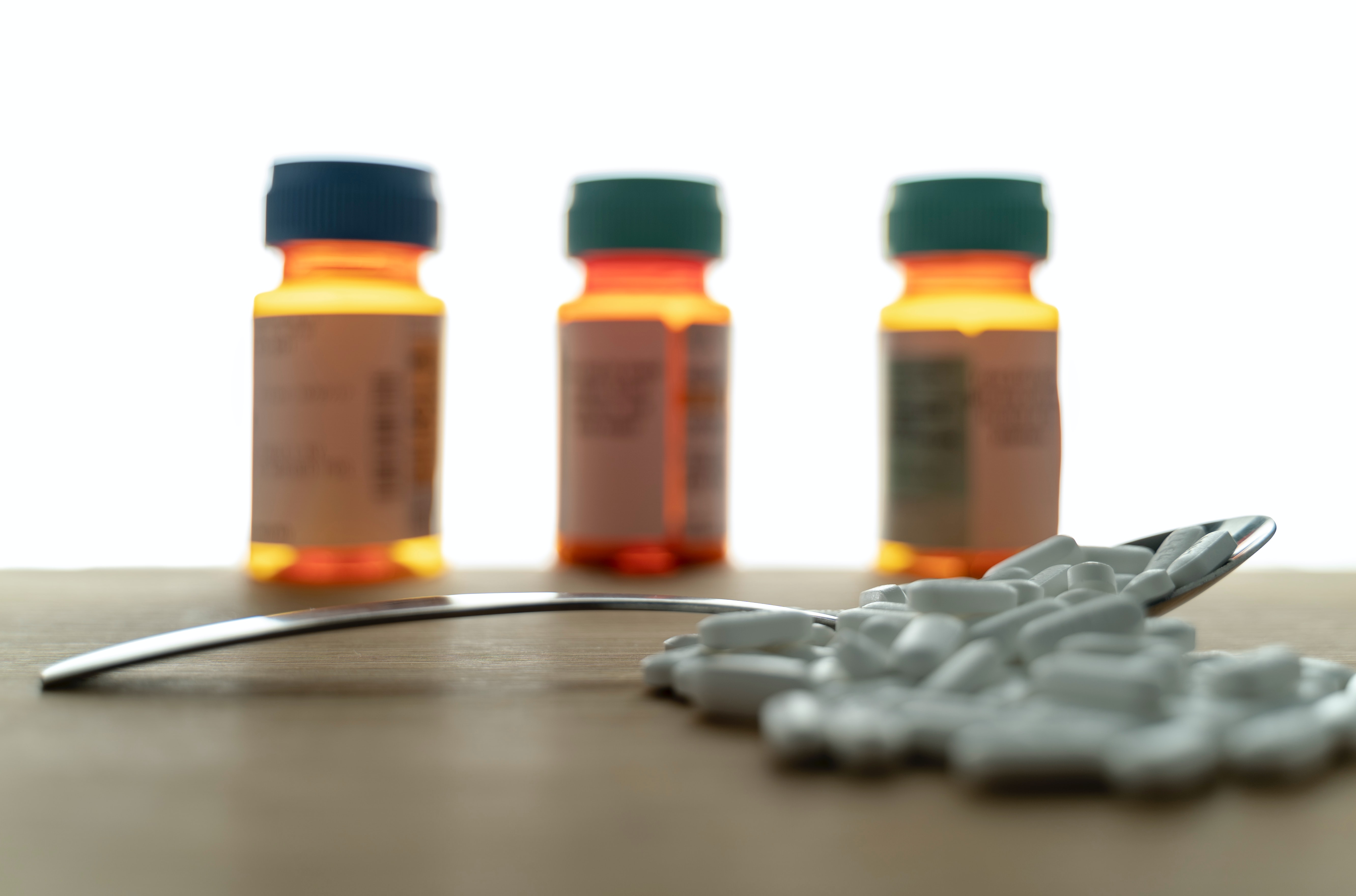
Between the opioid epidemic and an unlimited supply of alcohol, it’s no lie that drug and alcohol addictions have become increasingly problematic in our world today. But it’s not just prescription pills and alcohol that have been sweeping the nation. Hardcore drugs like heroin, cocaine, and other lesser known street drugs are increasing as well.
Addiction leads to a profound loss of control. It’s where a person can no longer control their actions, thus their cravings for drugs, alcohol, and other powerful substances take over no matter how dangerous or how expensive they are. People with addiction will risk everything for a “fix”, so to speak. They even go so far as to hurt the ones that love them most and lose everything they worked for just to fulfill their addictions, because their body is so dependent on the chemical reaction the drug gives.
While it may seem that addiction is a choice and all that a person needs to do is simply stop, according Dr. George Koob, director of the National Institute on Alcohol Abuse and Alcoholism, “Nothing could be further from the truth… The brain actually changes with addiction, and it takes a good deal of work to get it back to its normal state. The more drugs or alcohol you’ve taken, the more disruptive it is to the brain.” Addiction produces destructive behaviors and can be almost impossible to break, but it is possible.
As we mentioned earlier in this article, the brain is a powerful organ. “Addiction’s power lies in its ability to hijack and even destroy key brain regions that are meant to help us survive.” So the more drugs and alcohol you consume, the more stressed and anxious your body feels when you're not consuming them. This is why alcoholics and drug addicts say, “Drugs and alcohol are the only things that make me feel normal.”
When a drug addict or alcoholic decides that enough is enough, and they get the help they need to break their addictions, they will endure withdrawal symptoms. These symptoms include:
- Anxiety (nervousness)
- Fatigue
- Depression
- Irritability
- Mood swings
- Shakiness
- Nightmares
- Unclear thinking
- Muscle aches
- Insomnia
- Sweating
- Nausea and vomiting
- Abdominal upset
- Rapid heart rate
- Loss of appetite
- Hallucinations
- Seizures (in severe cases)
- And more
These symptoms can be felt within 8-12 hours after the last use and will usually last for several days. While consulting with professionals is imperative when first getting off drugs and alcohol, once the body is detoxed, it takes an array of lifestyle changes to maintain sobriety.
This is where CBD oils and other products can really help. According to studies, CBD “could indirectly be useful in the treatment of addiction disorders, such as its protective effect on stress vulnerability and neurotoxicity.” This means CBD oils and other products could help relieve the stress and reduce anxiety that comes when cravings arise. It also means CBD could help reduce cravings by bringing the body back into balance.
Additionally, one study showed that when transdermal CBD was applied on animals who were addicted to cocaine and alcohol for seven days, they not only displayed absolutely no addictive characteristics, but they also didn’t relapse for at least 5 months, even after the CBD cleared out from their brain and body. It’s even been shown that CBD can reduce nicotine addiction.
But does this mean I have to stay on CBD forever in order to combat addictive cravings?
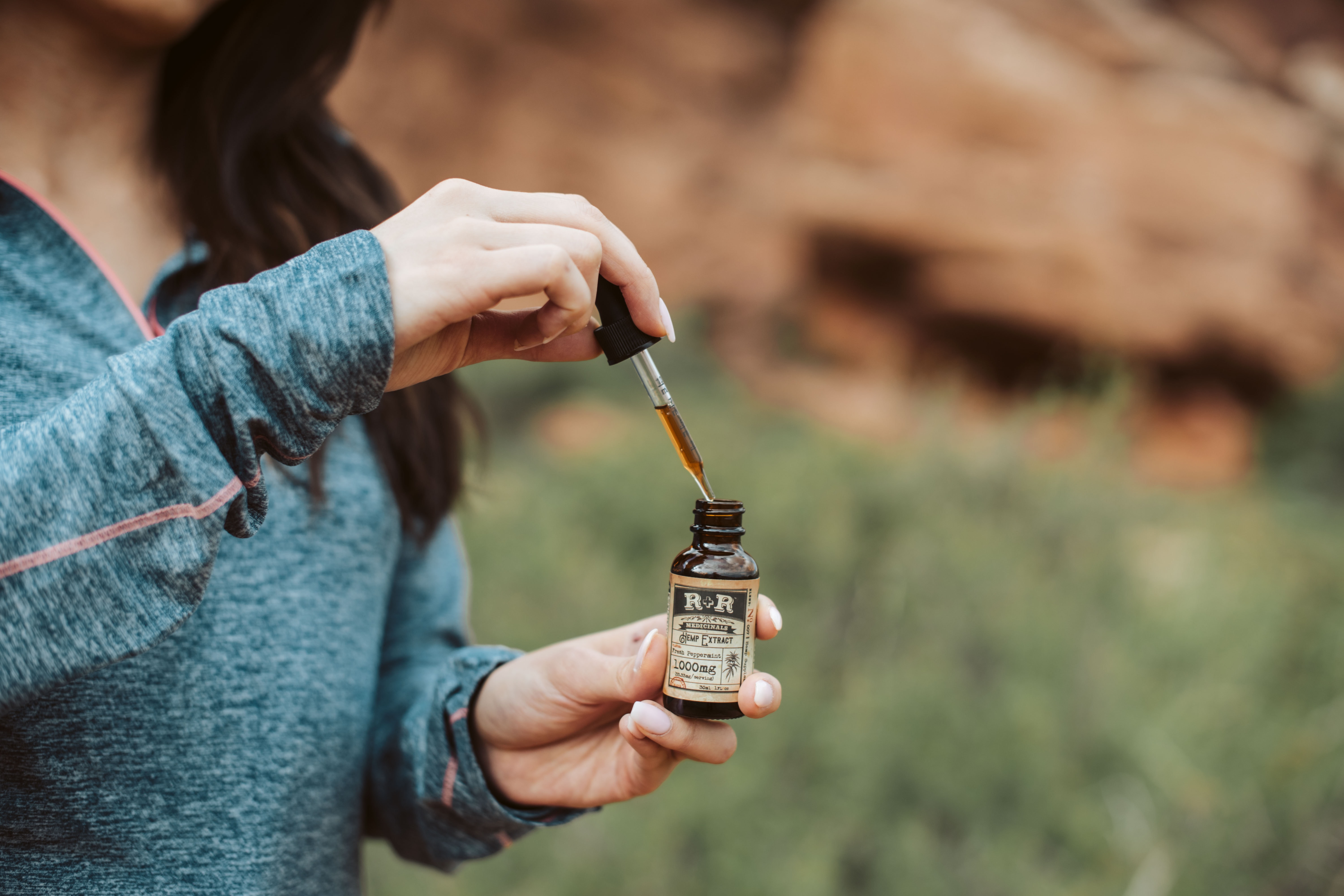
No, as we mentioned earlier, even after CBD leaves the mind and body, its therapeutic effects are still experienced for days, weeks, and even months. If you’ve battled with any form of addiction, whether its drugs, alcohol, nicotine, or even sugar, you know sobriety requires a life-long commitment. One drink, one smoke, one pill, or even one cookie can set you back.
It takes major lifestyle changes and the help of organic natural supplements like CBD to help reduce the cravings and withdrawal symptoms.
If you are interested in combating your addiction with CBD, the best place to find high quality CBD products are online. Just be sure to seek out reputable CBD companies that thoroughly test their products and formulate them using organic ingredients.
The best CBD products for addiction include the following:
- CBD capsules (discreet and comes in various strengths)
- CBD gummies (discreet and comes in various strengths)
- CBD oils and tinctures (the most effective and potent form of CBD)
- CBD infused drinks (discreet, hydrating, and soothing)
- CBD creams and lotions (incredibly effective and discreet)
Remember to speak with your doctor before adding CBD to your daily regimen.


